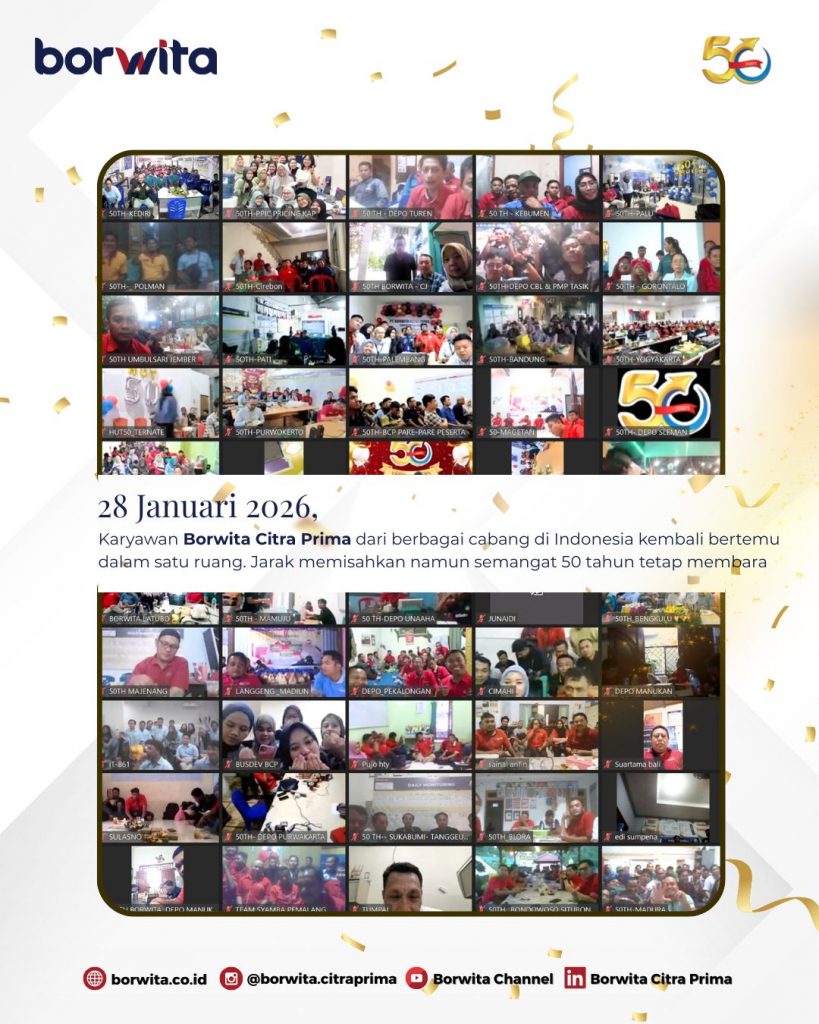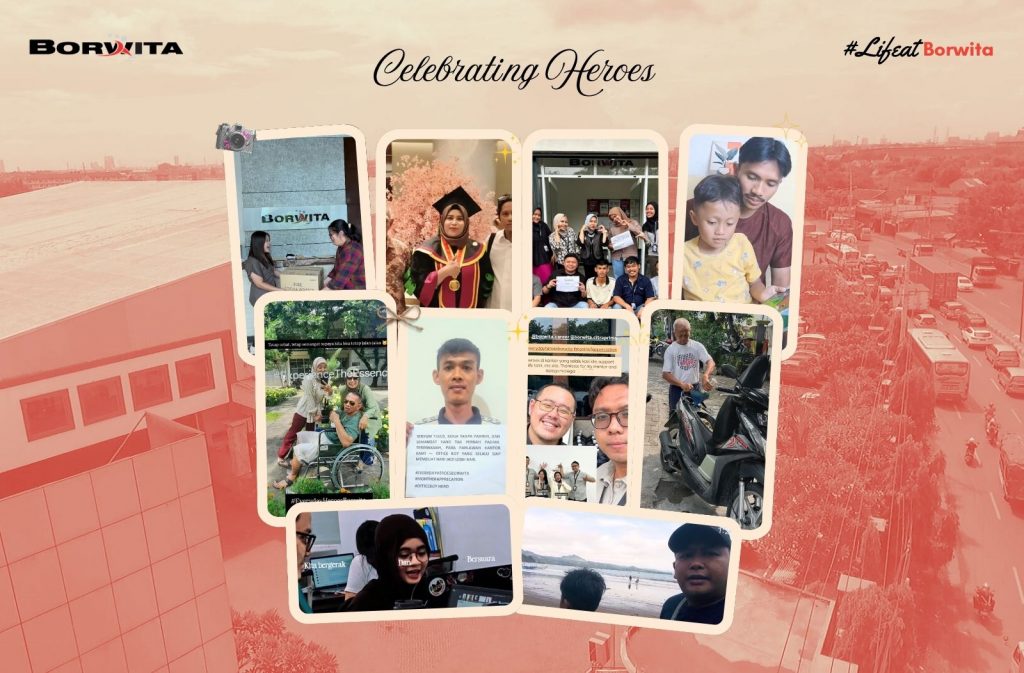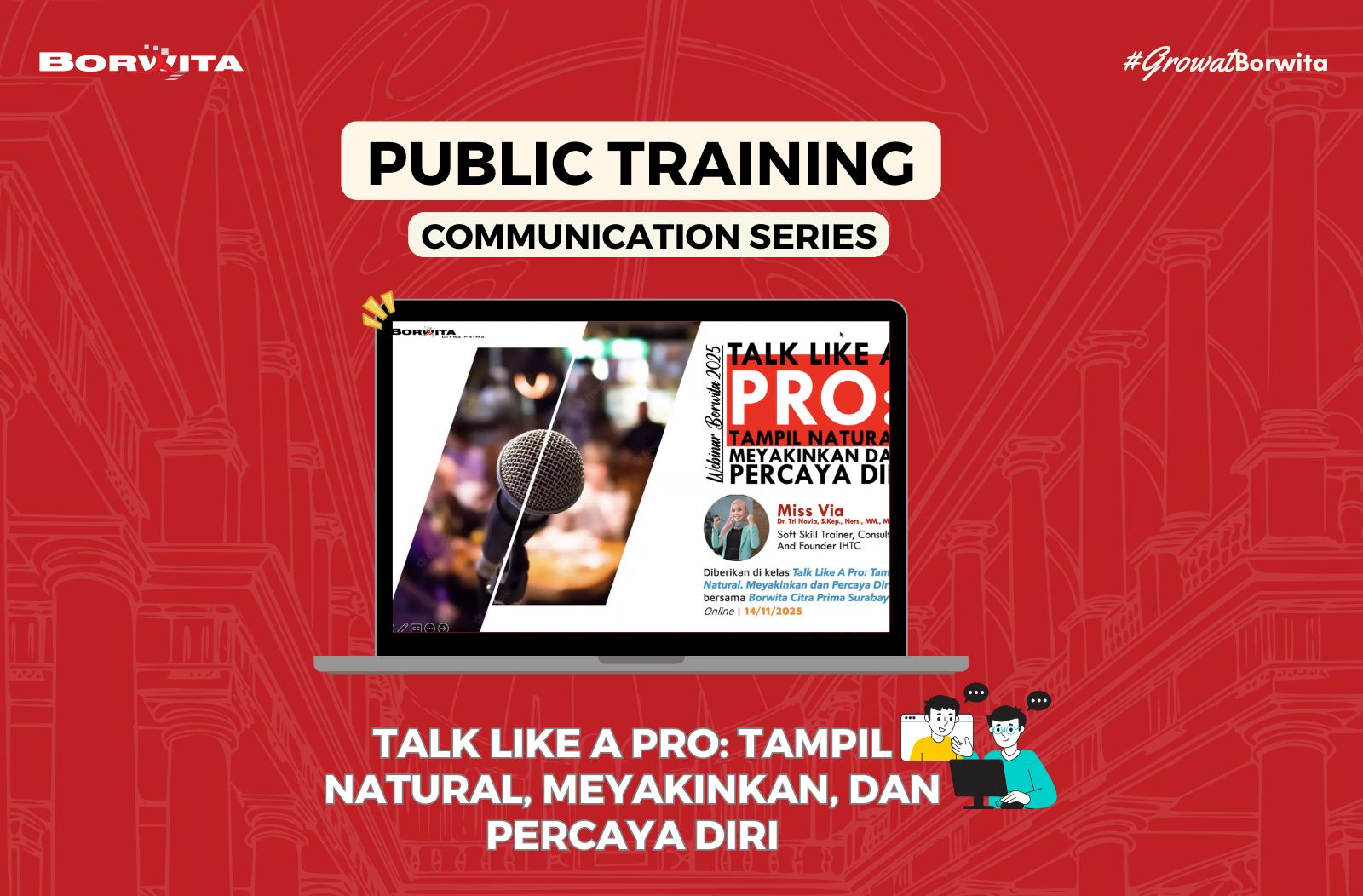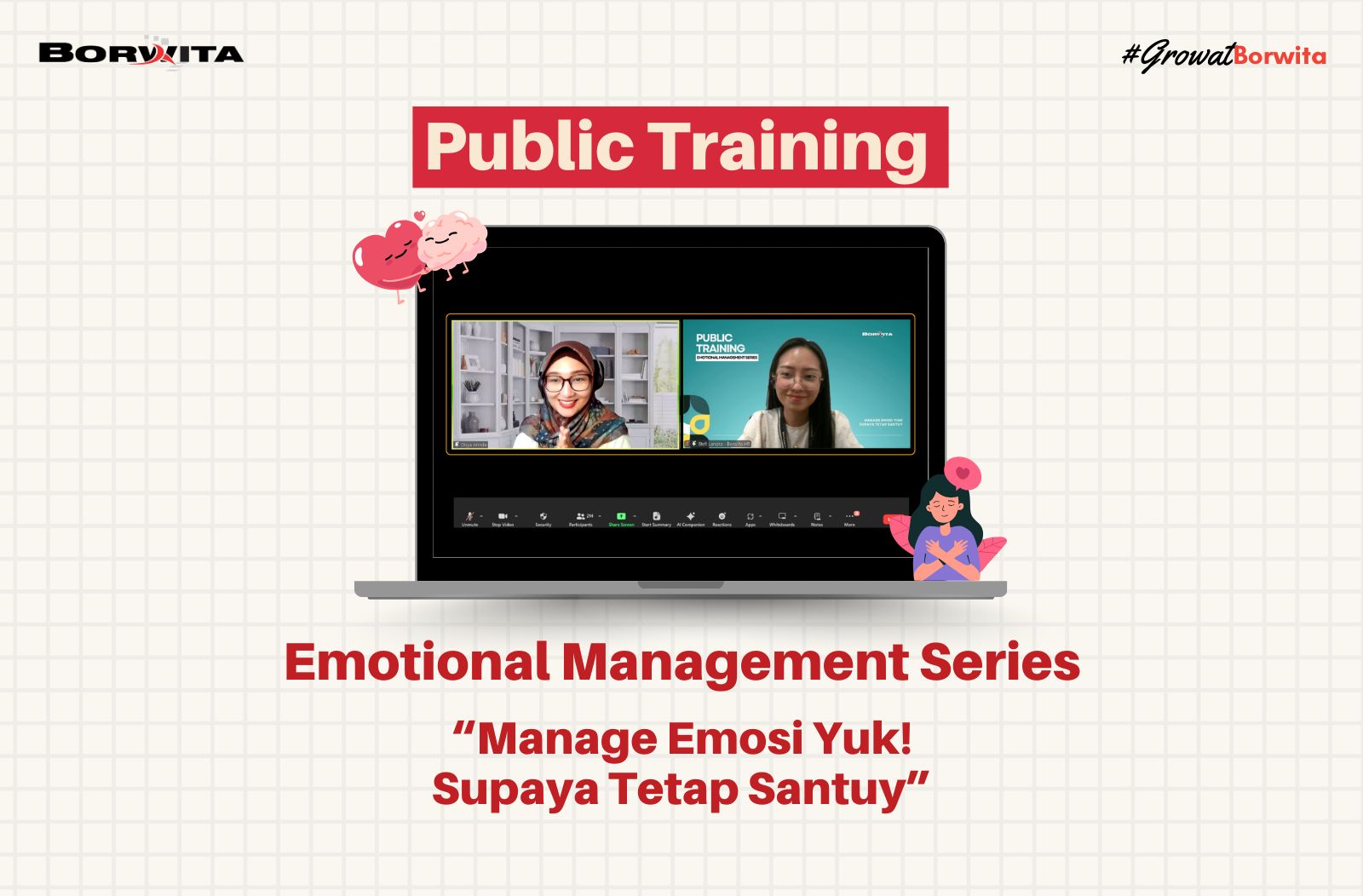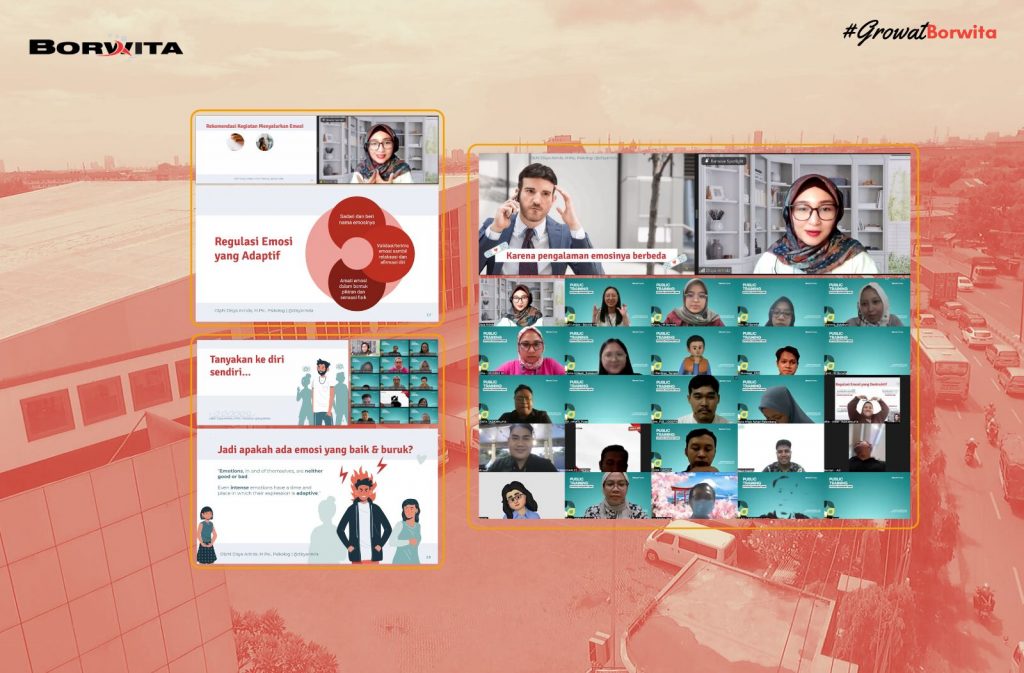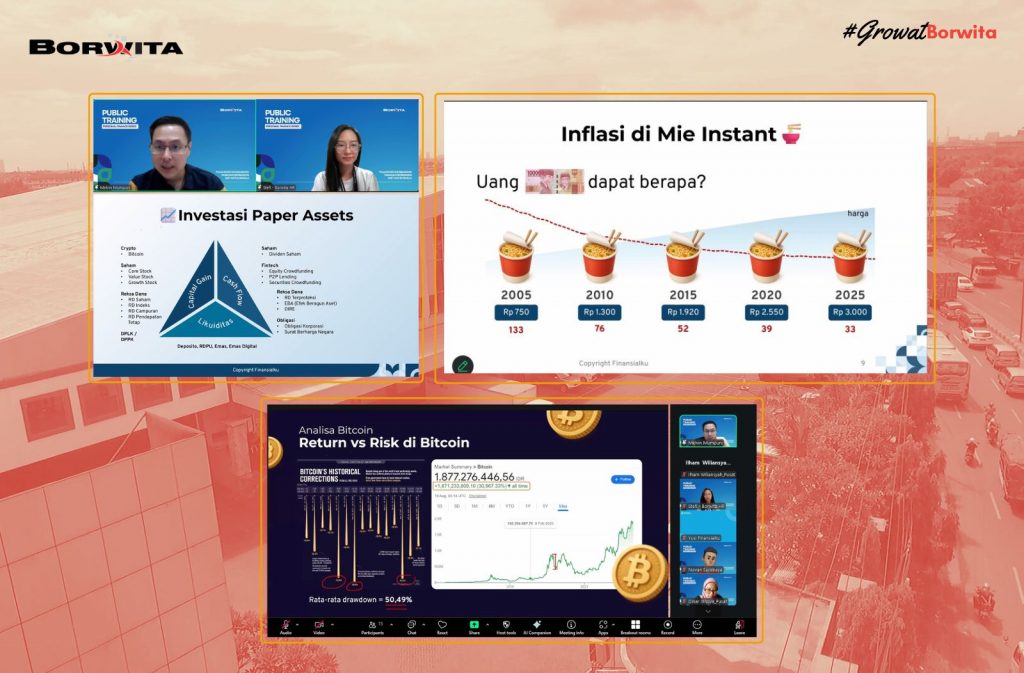Surabaya, January 20–21, 2026 — More than 150 leaders of PT Borwita Citra Prima gathered at Vasa Hotel Surabaya for the Borwita Yearly Meeting (BYM) 2026. This annual strategic forum marked a significant milestone as Borwita officially launched its five-year transformation theme: S.C.A.L.E 2026 – 2030.
As a leading Distributor FMCG Indonesia, Borwita continues to strengthen its foundation while preparing for a much larger-scale growth phase in the years ahead.
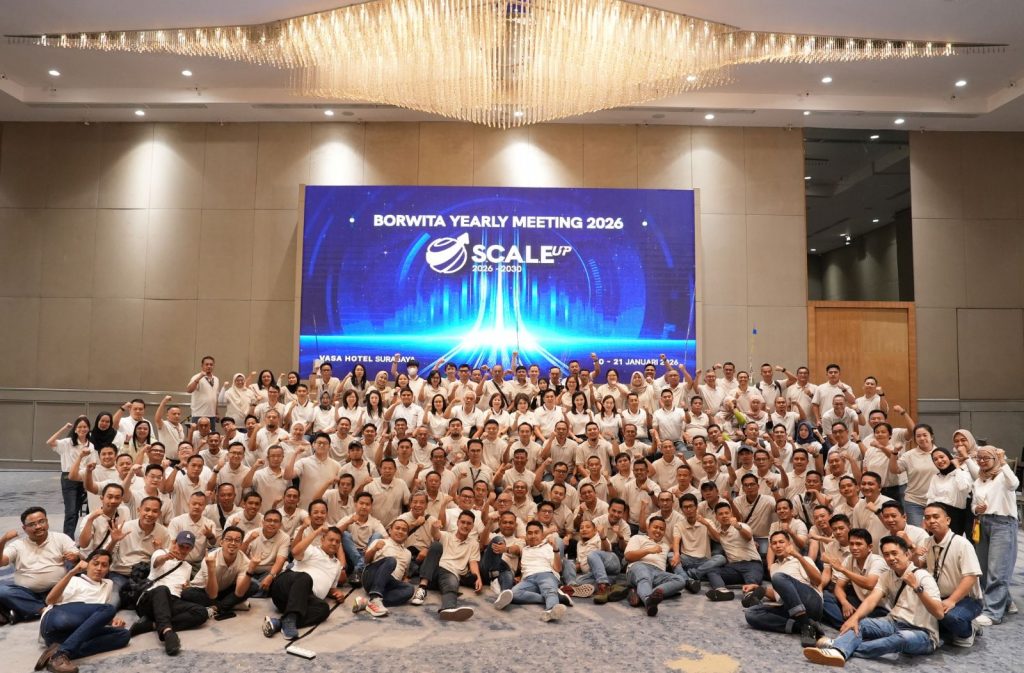
Prior to the Yearly Meeting, all participants attended Borwita’s grand 50th Anniversary celebration held at The Westin Surabaya. The milestone event reflected five decades of commitment in building a strong and reliable distribution network across Indonesia.
The full anniversary story can be read here .
The main sessions of BYM 2026 focused on comprehensive business performance reviews, strategic evaluation, and alignment of priorities for the upcoming year. Leaders from various regions and functions engaged in in-depth discussions to ensure organizational readiness for increasing market complexity and expansion.
During this pivotal forum, Borwita officially introduced S.C.A.L.E 2026–2030, a five-year strategic framework designed to guide the company’s next growth chapter:
Preparing Borwita for much larger-scale growth.
Focuses on strengthening daily operations, implementing the right controls, and accelerating the use of technology, while always preparing and paving the way for the future.
This framework reinforces Borwita’s commitment to operational excellence, disciplined execution, and digital acceleration, key pillars in strengthening its position as a trusted Indonesia FMCG Distributor.
Following the strategic sessions, the atmosphere shifted into a vibrant and engaging Talent Show night. Each regional team showcased their creativity through performances ranging from drama and dance to singing and mixed acts. Beyond entertainment, the session strengthened cross-regional collaboration and highlighted the strong team spirit that drives Borwita’s performance nationwide.
Inspirational Talks with Dahlan Iskan
The event became even more inspiring with the presence of Dahlan Iskan CEO of Harian Disway, ex-Minister of BUMN, ex-PLN Board Director, and ex-CEO of Jawa Pos — who delivered an Inspirational Talk on leadership in times of transformation.

He emphasized the importance of bold decision-making, speed in execution, and leaders who are willing to be directly involved on the ground. His insights resonated strongly with Borwita leaders as they navigate the company’s next transformation phase.
The session was also covered by Harian Disway, and the full article can be accessed here .
Scale Up Project
As a symbolic closing activity, participants joined the Scale Up Project, a team-building challenge requiring creativity and strategic thinking. Teams were tasked with constructing a “Borwita Tower” using recycled materials provided by the committee. To obtain additional tools, teams had to participate in mini-games and earn “capital” to purchase materials.

The challenge reflected real business dynamics, planning under constraints, disciplined execution, teamwork, and leadership under pressure, embodying the spirit of S.C.A.L.E in action.
Borwita Yearly Meeting 2026 was more than an annual gathering. It marked a new chapter in the company’s long-term growth journey.
With the launch of S.C.A.L.E 2026–2030, strengthened leadership alignment, and reinforced collaboration across regions, Borwita continues to position itself as a forward-looking Distributor FMCG Indonesia, ready to scale operations, impact, and innovation toward 2030.
Scale the mindset. Scale the system. Scale the impact.







